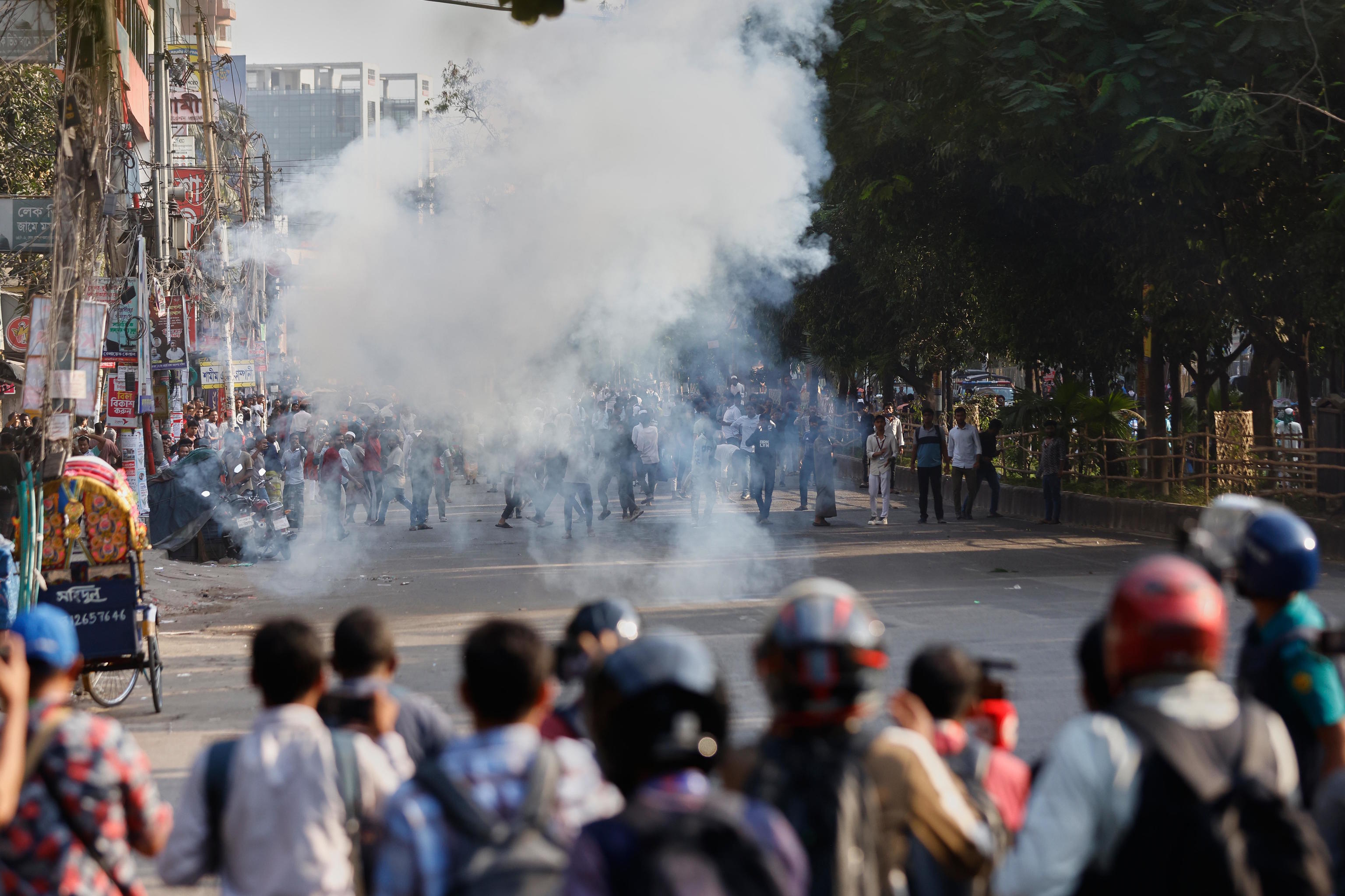Former Prime Minister of Bangladesh, Sheikh Hasina, was declared guilty of crimes against humanity on Monday and sentenced to death for the deadly repression of the student uprising that erupted in 2024, leading to the overthrow of her government after 15 years in power. According to a UN investigation, at least 1,400 protesters died during last year's protests.
A Bangladesh war crimes tribunal concluded that Hasina (78 years old) and several of her top officials were guilty of "conspiring to murder civilians," as well as "inciting and facilitating organized violence" against the thousands of students who peacefully protested in July and August of 2024.
That summer, in this South Asian country with a majority Muslim population of 170 million, a popular uprising broke out initially demanding the abolition of a quota system for public service jobs, but it ended up as an anti-government movement seeking to end Hasina's authoritarian rule. After her government fell, the leader fled by helicopter to India, where she is currently located.
Anti-government protesters during the assault on Sheikh Hasina's palace in Dhaka on August 5, 2024.K M ASADAFP
Following the death sentence verdict, there were cheers and applause in the courtroom of this tribunal in the capital, Dhaka, which issued the verdict amid tight security measures due to fears of possible disturbances by Hasina's supporters and her party, the Awami League, which is banned from participating in the upcoming elections.
In early 2024, Hasina secured her fourth consecutive term in controversial elections that were attempted to be boycotted by the opposition, alleging fraud. International observers also reported several irregularities during the process. With Hasina in power since 2009, Bangladesh achieved historic economic development while the country was pushed towards an increasingly repressive regime.
During the trial, prosecutors told the court that they had found evidence that the former leader had given the direct order to use lethal force to suppress last year's protests, in the worst wave of violence in Bangladesh since its independence in 1971.
"These proceedings are a farce with political motivations. It is an illegitimate court, presided over by an unelected government, whose purpose is to issue a predetermined guilty verdict and discredit a political opponent," Hasina defended last month in an interview with Reuters, questioning the legitimacy of a tribunal created by Hasina herself in 2010 to try crimes against humanity related to Bangladesh's independence war against Pakistan.
After Hasina's escape, an interim government was formed in Bangladesh led by Muhammad Yunus, the 2006 Nobel Peace Prize winner for establishing a microcredit bank that lifted millions of people out of poverty.
Protest leaders called for a respected and consensus-building figure, critical of Hasina's regime, to lead the reconstruction of a new Bangladesh until clean elections, scheduled for next February.
